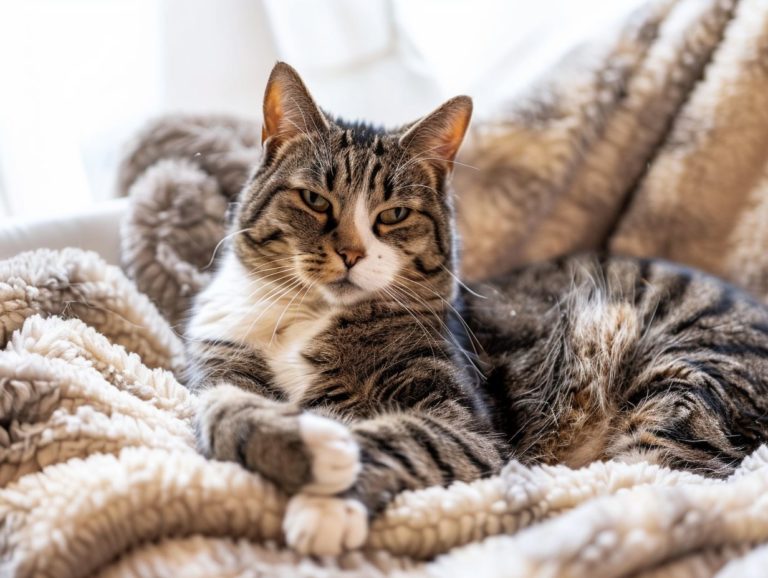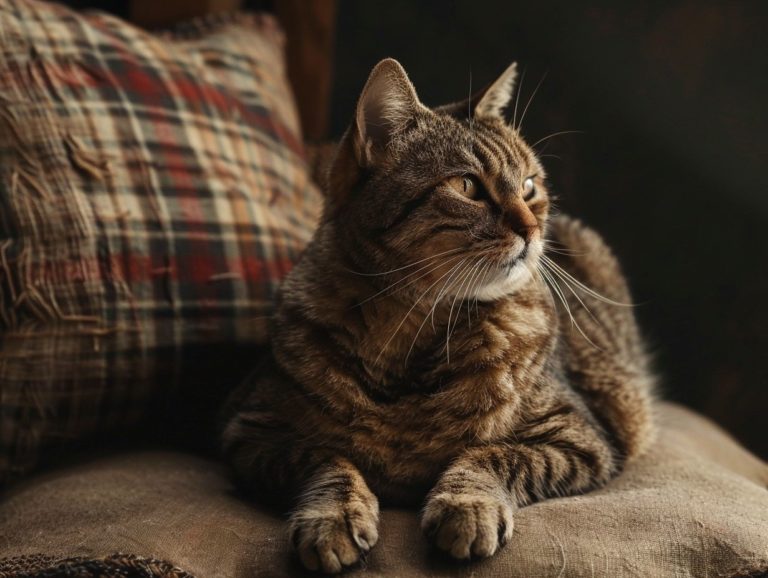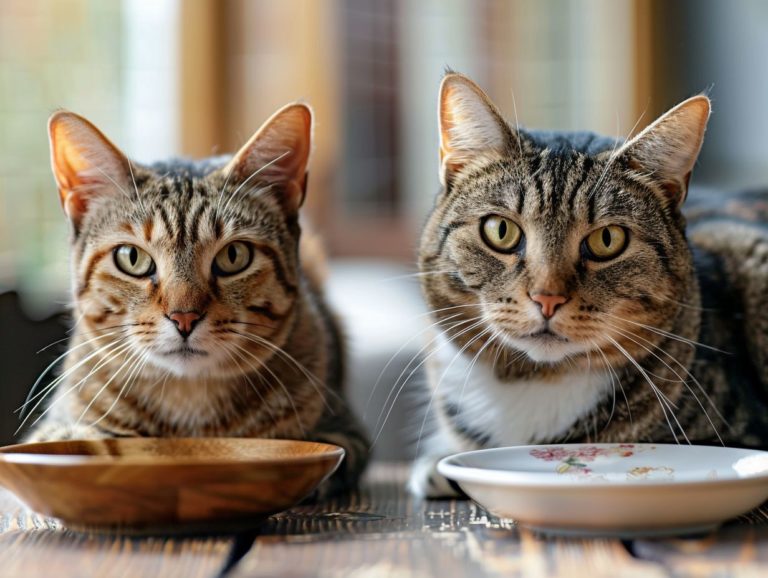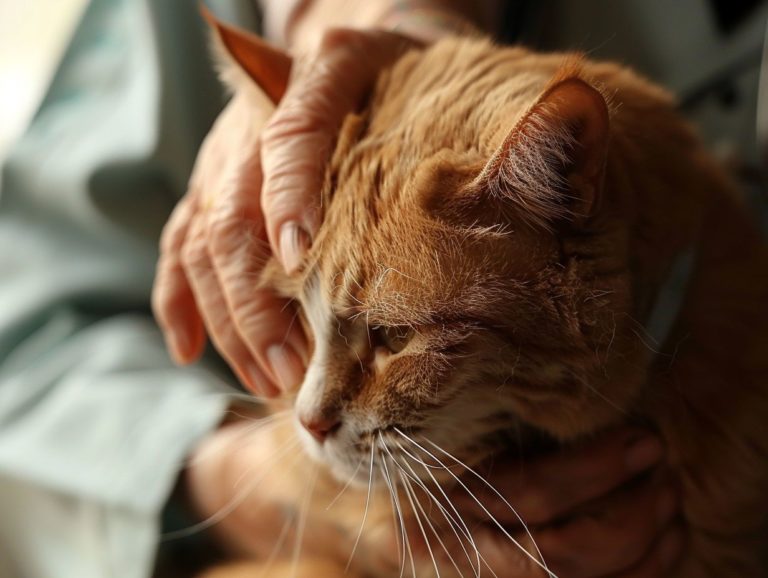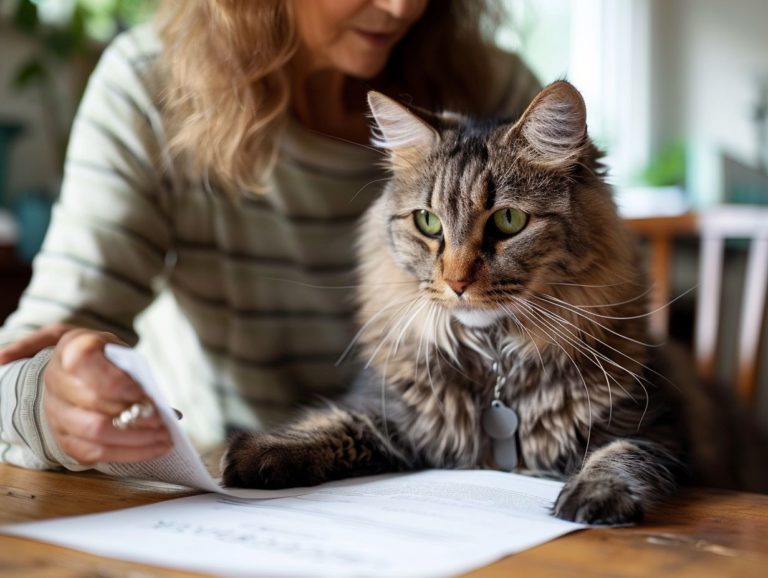Coping With The Rising Costs Of Senior Cat Healthcare Through Insurance
This article addresses the significance of senior cat healthcare, the factors contributing to the increasing costs of caring for senior cats, the advantages of pet insurance for senior cats, the coverage options pet insurance can offer for older cats, and how pet insurance can help lower expenses.
Additionally, we offer guidance on selecting the most suitable pet insurance for senior cats and alternative strategies for managing the heightened healthcare expenses of senior cats. This article is designed for both seasoned cat owners and individuals who are new to caring for senior cats.
Key Takeaways:
The Importance of Senior Cat Healthcare
Senior cat healthcare is crucial because as cats age, they require specialized veterinary care to monitor and treat the health issues that commonly affect them. Proper medical attention is vital for the well-being of senior cats and plays a crucial role in managing associated pet expenses.
Aging cats often develop conditions like arthritis, kidney disease, dental issues, and hyperthyroidism, underscoring the importance of regular veterinary check-ups for early detection. Untreated, these ailments can significantly diminish a cat’s quality of life.
Providing proper care for senior cats involves tailored diets, exercise routines, and adherence to prescribed medications from veterinarians. While veterinary costs for senior cats can be substantial, preventive care and timely interventions can lower long-term expenses and ensure a longer, healthier life for your feline companion.
Understanding the Needs of Aging Cats
Cat owners should be aware of the needs of aging cats, as senior felines are susceptible to various health issues that require specialized care. Preventative care plays a crucial role in ensuring that older cats maintain good health as they age.
Cats are prone to developing a range of diseases as they grow old, such as arthritis, dental problems, and kidney disease. Arthritis, a degenerative joint condition, can limit the mobility of senior cats. Dental issues may lead to discomfort and decreased appetite, while kidney disease is a significant concern for elderly cats, necessitating regular monitoring and potential dietary adjustments.
Regular veterinary checkups are vital for early detection and treatment, and senior-specific diets can help prevent obesity and provide essential nutrients for the health of aging cats. Providing stimulating environments for older cats can also help preserve their mental acuity and alertness.
Rising Costs of Senior Cat Healthcare
The escalating financial strain of mounting healthcare expenses for senior cats encompasses the rising costs of veterinary care and medical treatments. With advancing age, the expenses associated with veterinary consultations, diagnostic testing, and medical interventions for senior cats tend to increase.
Consequently, this surge in costs can result in a heavier financial burden for pet owners. Senior cats often necessitate managing veterinary costs with senior cat insurance to address age-related ailments like arthritis, kidney disease, and dental issues.
Along with the heightened frequency of veterinary visits and potential need for emergency care, pet owners must cover the expenses for these essential products and services. As a result, this adds to the financial pressure faced by pet owners caring for aging cats, often prompting difficult decisions as they strive to balance their affection for their pets with the escalating costs of healthcare services.
Factors Contributing to Increasing Expenses
Several factors contribute to the increase in senior cat healthcare costs. Limited insurance coverage and annual limits frequently necessitate financial assistance for pet owners in managing the high expenses of veterinary care for aging cats.
As cats grow older, they are more prone to developing chronic illnesses that demand continuous treatment and supervision, resulting in more frequent vet visits and medication purchases. Moreover, specialized care and diagnostic tests like bloodwork and imaging further escalate the costs. Learn how senior cat insurance can save you money in the long run.
In these situations, pet owners may seek financial aid options such as vet payment plans or assistance from charitable organizations dedicated to helping with veterinary expenses.
The Benefits of Pet Insurance for Senior Cats
Pet insurance for senior cats offers essential financial assistance through insurance coverage to help manage the veterinary costs of older animals, benefiting both senior cats and their owners. As animals age, they are more susceptible to developing health issues that necessitate regular veterinary care.
Senior cat insurance provides peace of mind to pet owners, ensuring they are prepared for unexpected medical expenses. It also helps cover the cost of preventive care, including vaccinations and screenings crucial for the overall health and well-being of senior cats.
By investing in pet insurance for senior cats, pet owners can ensure they can afford essential medical attention for their aging feline companions.
Coverage and Cost Savings
Pet insurance plans for cats offer extensive coverage and offer substantial financial assistance to pet owners in need. Leading pet insurance providers assist in covering healthcare expenses for senior cats by including veterinary visits, surgeries, medications, and diagnostic tests in their plans. These insurance policies usually reimburse the costs associated with accidents and illnesses that older cats may experience, providing peace of mind to pet owners.
When choosing a pet insurance provider, it is important to consider coverage limits, deductibles, and premium costs to choose the most suitable plan based on your budget and the requirements of your senior cat.
Choosing the Right Insurance Plan for Your Senior Cat
Selecting the appropriate insurance plan for senior cats entails considering the right pet insurance coverage, accidental coverage, and the specific insurance requirements of various cat breeds. These factors should be considered when choosing an insurance policy for senior cats.
Pet insurance coverage should encompass common medical conditions that senior cats are susceptible to, such as arthritis, dental issues, and kidney disease. Accidental coverage is also crucial for senior cats, given their increased likelihood of accidents due to age-related decline in agility. Explore how insurance can help manage senior cat diabetes for your furry friend’s health needs.
Insurance plans tailored to different cat breeds may be necessary to address specific genetic predispositions to various health problems. Tailored insurance coverage should be chosen to address individual needs and ensure optimal care for the pet.
Factors to Consider
When choosing a pet insurance plan for senior cats, it is important to consider exploring alternative options, assessing financial challenges, and selecting a policy that best fits your pet’s healthcare needs.
An essential factor to consider is the coverage provided by the insurance plan. Opt for a policy that covers common health issues in senior cats, such as wellness and preventive care options in senior cat insurance, such as arthritis, dental problems, urinary issues, and other chronic conditions.
Evaluate the reimbursement percentage and deductible amount to determine your out-of-pocket expenses. While a policy with a higher monthly premium may offer a higher reimbursement percentage or lower deductible, it could be more cost-effective in the long term.
Review the policy’s limits and exclusions to avoid any surprises when making claims. By carefully considering these factors, pet owners can make an informed decision and ensure comprehensive coverage for their senior cat’s healthcare needs.
Alternative Options for Managing Healthcare Costs
Here are alternative methods to pet insurance for managing senior cat veterinary care costs, including financial assistance programs, preventative care methods, and other pet insurance plans to help pet owners better afford caring for older cats.
Financial assistance programs, such as low-cost clinics or non-profit organizations, can provide help with veterinary medical expenses for senior cats, reducing financial burdens associated with older cats.
Preventative care, such as regular check-ups, vaccinations, and maintaining a healthy diet, can significantly reduce the chances of expensive emergency treatments.
Additionally, specialized senior cat pet insurance plans offered by several pet insurance companies cover conditions commonly seen in older pets, ensuring more comprehensive coverage for veterinary expenses.
Other Ways to Save on Senior Cat Healthcare
Pet owners can save on senior cat healthcare beyond insurance by exploring financial assistance options and implementing general strategies to reduce the costs associated with older cat care. Engaging in preventive care for senior cats proves to be an effective cost-saving measure, as early detection and treatment of diseases can avert the necessity for more costly procedures in the future.
Pet owners may benefit from seeking loyalty plans offered by veterinary practices for discounted services. Ensuring that older cats maintain a healthy diet and weight is another valuable tip that can lead to long-term savings by preventing diseases linked to obesity. Additionally, utilizing online databases to search for potential discounts on prescription medications and treatments can contribute to cost reduction.
Frequently Asked Questions
What is senior cat healthcare insurance?
Senior cat healthcare insurance is a type of insurance that helps cover the costs of medical care for older cats. It typically includes coverage for routine check-ups, vaccinations, and treatments for common age-related health issues.
Why is senior cat healthcare insurance important?
As cats age, they are more prone to developing health issues that require medical treatment. This can result in expensive vet bills that can be a financial burden for pet owners. Senior cat healthcare insurance helps alleviate the financial strain by covering a portion of these costs.
What types of coverage are usually included in senior cat healthcare insurance?
Senior cat healthcare insurance typically includes coverage for routine care, such as annual check-ups, vaccinations, and flea/tick prevention. It may also cover treatments for common age-related health issues, such as arthritis, dental disease, and kidney disease.
How do I know if my senior cat is eligible for healthcare insurance?
Each insurance provider may have different eligibility requirements. However, in general, senior cat healthcare insurance is available for cats over the age of 8 years. Some providers may also require a recent vet exam and may have age restrictions for certain breeds.
What are the benefits of having senior cat healthcare insurance?
The main benefit of senior cat healthcare insurance is the peace of mind it provides to pet owners. It ensures that their senior cat can receive the necessary medical care without financial strain. It also allows pet owners to budget for their cat’s healthcare expenses, rather than being hit with unexpected large bills.
How much does senior cat healthcare insurance typically cost?
The cost of senior cat healthcare insurance can vary depending on the provider, the level of coverage, and the age and health of the cat. On average, it can range from $20-$50 per month. It’s important to compare different providers and coverage options to find the best fit for your budget and your cat’s needs.

